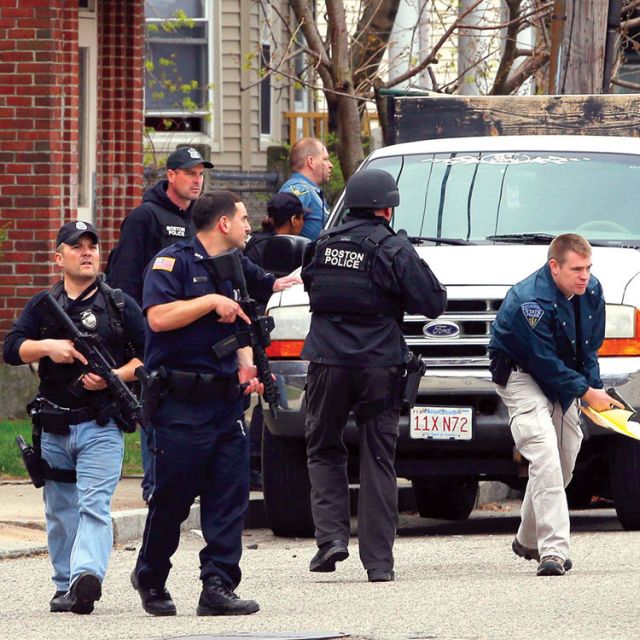We later learned what a close call he’d had. Mike had been following a group of runners but decided to stop at a washroom on Boylston Street. If not for that delay he could have been at the site of the first bomb. Instead, he was caught in between the two blasts. He felt the percussion of the second blast and then police funnelled everyone out of the area.
I had previously planned to drive to Boston on April 19. On the morning of my departure I awoke to the news of a shoot-out between two suspects and police in Watertown, Mass., the town where I grew up. The pictures showed the Town Diner and a network of streets in East Watertown, near where my mother still lives.
On one of those streets police shot a suspect, Tamerlan Tsarnaev, but his brother Dzhokhar Tsarnaev, escaped.
My mother, 86, slept through it all, even a police phone call received by everyone in the area at 2 a.m. Her neighbour heard the gun shots and saw the flashing lights and heard sirens blaring only a few blocks away.
Boston was virtually shut down that morning by a directive from the governor, but I decided to go anyway. It was a request, not a curfew, I reasoned. I listened to National Public Radio for most of my drive, riveted to updates on the manhunt in my old neighbourhood as police went house to house searching for suspect number two.
At my brother’s home, we stared with disbelief at the television screen that evening as police focused their search on a boat in a backyard on Franklin Street, about six houses away from the home in which we spent our childhood. We called our sister Barbara in California and put her on speaker phone as SWAT teams converged on the neighbourhood where we used to play kickball, or slide down Centre Street on our American flyer sleds. Our neighbourhood Christmas carolling would have been near there. My sister had a friend who lived next door.
On Saturday night, long after Dzhokhar had been captured and taken to the hospital where I was born, Mike, Sally and I took a drive through the streets of Watertown. Franklin was blocked off, but we found another way onto our old street and saw TV satellite trucks, media tents, reporters doing stand ups. It was surreal.
Earlier that afternoon, Mike showed me some of the footage he shot. He had caught joyful faces and cheering crowds four to five deep on both sides of the entire route. Beauty. Joy. Exuberance. Life.
Then he showed me the grey smoke billowing from the first explosion and the hush that fell over the crowd for a second or two. He thought he had stopped rolling, but his camera was recording as police shouted for people to leave the area. You can hear fear in voices as people rush away.
Mike’s not religious, he’s more of an agnostic. He wondered what he could do with footage that showed the positive side of the marathon. I hope the runners will continue to run, he said. But he knew of people who were in hospital, injured from the blast, and wondered if they were thinking: “If only I had not brought my family to the finish line.”
I paraphrased what Pope Francis had said in his telegram to Cardinal Sean O’Malley, archbishop of Boston: “Do not be overcome by evil, but overcome evil with good.” Mike appreciated that and said he shared that hope.
I can’t help but see the events from a religious perspective. I told him the marathon seemed to me like Jesus’ triumphant entry into Jerusalem only to be followed by His suffering and death. It’s the only way I can make sense of the deaths and horrible injuries. I see the evil endured by Christ and know resurrection follows. I’ve lived more than half my life in Canada, but this tragedy stirred up my love for my home town. The Boston Marathon — as my brother came to see — epitomizes good, a feeling of family, of care for one another, of solidarity, of a sense that at heart, no matter how secular and worldly she becomes, Boston is still a Catholic town.

